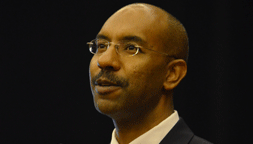
I was on Brasstacks Sunday on 12 March 2017 with former Attorney General Dale Marshall representing the BLP, George Pilgrim representing the DLP, Former Minister of Commerce, Consumer Affairs and Business Development, attorney Lynette Eastmond of the UPP. I was representing Solutions Barbados.
During one intervention, I explained that the 1974 Constitutional amendment that effectively politicised our civil service is the likely root cause of all of Barbados’ problems. Both attorneys Dale Marshall and Lynette Eastmond disputed my assertion, and claimed that the Constitutional amendment only applied to judges, while I claimed that it applied to most senior posts.
Attorney Dale Marshall then read a section of Barbados Constitution on air to attempt to prove me wrong. I attempted to respond but an advertisement break was called and then the discussion steered to other topics.
This is our response.
Before the 1974 amendment, the Governor General had the power to hire, fire, and discipline public servants. This ensured a professional public service without political interference. Section 97.1 of The Constitution of Barbados follows.
94.1: Subject to the provisions of this Constitution, power to make appointments to public offices and to remove and to exercise disciplinary control over persons holding or acting in such offices is hereby vested in the Governor General, acting in accordance with the advice of the Public Service Commission.
In 1974, the Democratic Labour Party passed the Constitution Order to change Barbados’ Constitution. Section 3 of the Constitution Order effectively stripped the Governor General of the power to hire, fire and discipline public servants. This power was to be “exercisable” by persons under the influence of Ministers – thus politicising our public service.
3. (1) Subject to sections 95 and 97 of the Constitution, the powers vested in the Governor-General by sections 94 and 96 thereof and specified in column 1 of Part I of the Schedule in respect of the posts so specified shall, without prejudice to the exercise of such powers by the Governor-General, be exercisable by the persons specified in column 2 immediately opposite to such posts.
(2) Notwithstanding sub-paragraph (1) and subject to the conditions specified in that sub-paragraph, the power conferred on the Governor-General by section 94 of the Constitution to make appointments to the posts mentioned in Part II of the Schedule shall be exercisable by the Chairman, Public Service Commission after consultation with the relevant Permanent Secretaries or the Chief Technical or Professional Officers, as the case may be.
Without the independent restraining power of the Governor General, the public service predictably became politicised, and this, in our opinion, is the root cause of all of our national problems. That a former attorney general and minister were unaware of this critical issue shows why Barbados is unlikely to improve under a DLP, BLP and now UPP administration.
A professional public service actively solves problems. A politicised civil service tends towards apathy, because the employees are fully aware that their advancement is dependent on being in favour with the political party in power. Therefore, people are effectively rewarded for doing the bare minimum on their job descriptions.
The attached Constitution Order, 1974 is a relatively short piece of legislation which specifies all of the posts which risked becoming politicised by the Constitutional change (see Parts I and II of the Schedule).





The blogmaster invites you to join the discussion.